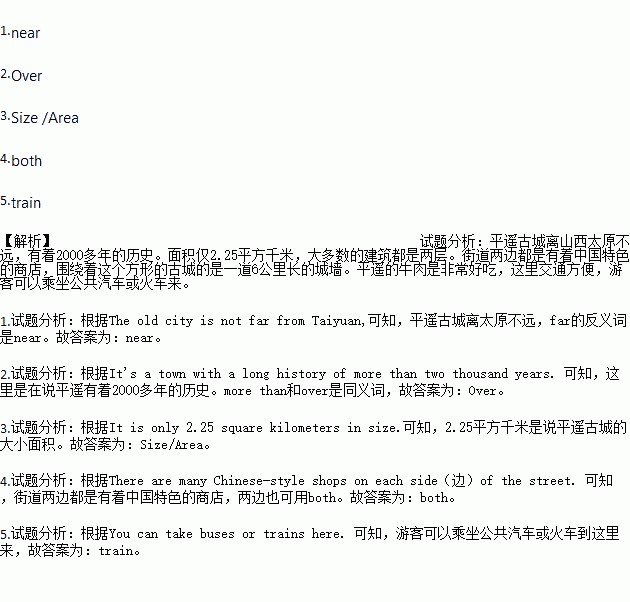题目内容
八、阅读填空
Do you know an old city called “Pingyao” in Shanxi? The old city is not far from Taiyuan, the capital of Shanxi Province (省). It’s a town with a long history of more than two thousand years.
The old city is not very large. It is only 2.25 square kilometers in size. And there are no tall buildings here. Most of the buildings have only two floors. And most of them are made of stones (石头). There are many Chinese-style shops on each side of the street.
Pingyao is a square city. The city has a wall around it. It’s about 6 km long and 12 m high. The wall has six gates. And you mustn’t miss the nice food in Pingyao. Try Pingyao beef and you are sure to fall in love with it.
Pingyao is a place worth (值得) a visit. You can take buses or trains here. It’s less than 2 hours’ bus ride from Taiyuan. It costs you only 20 yuan. If you take a train, it will take you less time, only one and a half hours. And if you want to go to Pingyao from Beijing, the train ride takes only about 6 hours.
The City of Pingyao
Location (位置) | In Shanxi, 1. Taiyuan. |
History | 2. 2000 years. |
3. | 2.25 square kilometers. |
Attractions (吸引人的东西) | Buildings: Most of them have only two floors. They are made of stones. |
Streets: There are shops on4. sides. | |
Wall: There is a 6-km-long wall around the square city. | |
Food: Pingyao beef tastes nice. | |
Transportation (交通) | Visitors can come to Pingyao by bus or 5.. |

